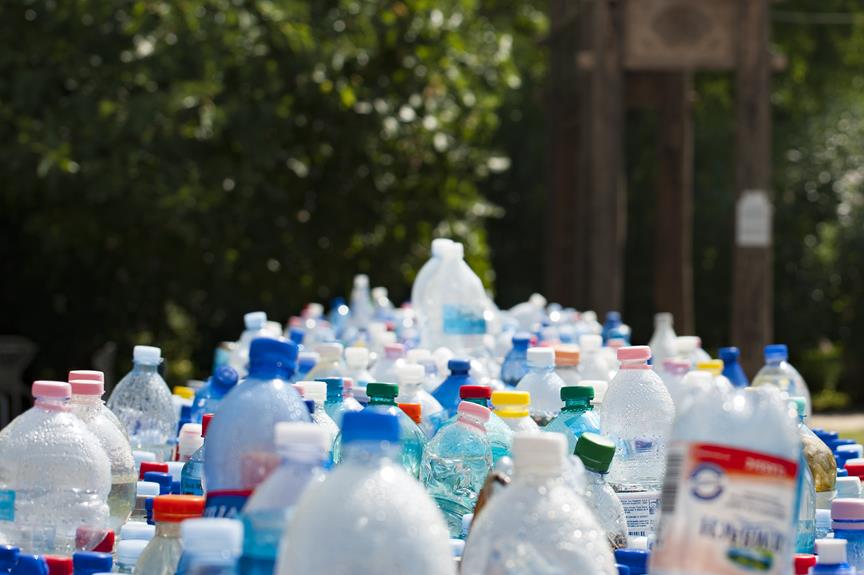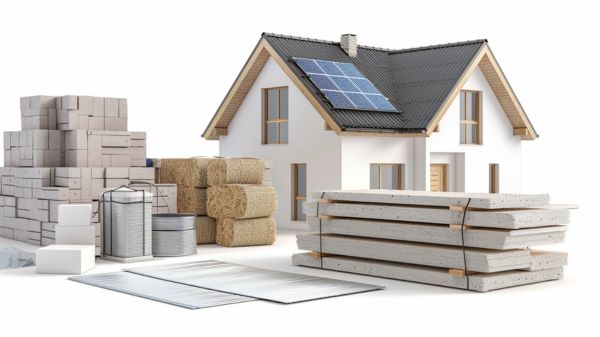Six Energy-Saving Perks of Recycling Waste
You think recycling is just a chore, don’t you? Well, think again! Recycling waste not only helps the environment, but it also comes with some surprising energy-saving perks.
By reducing energy consumption, decreasing greenhouse gas emissions, and conserving natural resources, recycling plays a crucial role in our quest for a sustainable future.
But that’s not all! It also promotes energy-efficient manufacturing processes and even contributes to renewable energy generation. So, join the recycling revolution and reap the benefits of a greener, more energy-efficient world.
Reduced Energy Consumption
By recycling waste, you can significantly decrease your energy consumption. Engaging in energy-saving practices through sustainable waste management isn’t only beneficial for the environment but also for your wallet.
When you recycle materials like paper, glass, and plastic, you reduce the need for extracting and processing raw materials. This, in turn, saves a significant amount of energy that would have been used in manufacturing new products from scratch.
Additionally, recycling reduces the energy required for waste disposal, as recycling processes often consume less energy compared to landfilling or incineration.
Decreased Greenhouse Gas Emissions
Recycling waste results in a reduction of greenhouse gas emissions. By implementing sustainable waste management practices, you can significantly contribute to reducing your carbon footprint and protecting the environment.
Here are two reasons why decreased greenhouse gas emissions through recycling can evoke an emotional response in you:
- Preserving the planet for future generations: Recycling waste helps to diminish the release of greenhouse gases, such as carbon dioxide and methane, into the atmosphere. This action helps to mitigate climate change and ensures a healthier and more sustainable world for your children and grandchildren.
- Creating a sense of belonging: By actively participating in recycling efforts, you become part of a global community committed to protecting the environment. Your contribution to reducing greenhouse gas emissions through recycling fosters a sense of belonging and pride in being part of a collective effort to preserve our planet’s natural resources.
Conservation of Natural Resources
To further reduce your environmental impact, conserve natural resources by utilizing sustainable waste management practices. By adopting these practices, you can contribute to environmental preservation and ensure a healthier future for our planet.
Sustainable practices such as recycling, composting, and reducing waste can help conserve valuable natural resources. Recycling waste materials, such as paper, plastic, and metal, reduces the need for extracting and processing virgin resources. Composting organic waste, such as food scraps and yard trimmings, enriches the soil and reduces the need for chemical fertilizers.
Additionally, reducing waste through mindful consumption and efficient packaging can help conserve resources like energy, water, and raw materials. By incorporating these sustainable practices into your daily life, you play a crucial role in the conservation of natural resources and the overall well-being of our environment.
Energy-Efficient Manufacturing Processes
Maximize the energy efficiency of manufacturing processes by implementing sustainable waste management practices. By adopting sustainable production techniques and eco-friendly production methods, you can make a significant impact on reducing energy consumption and minimizing environmental harm. Here are two reasons why these practices are essential:
Reduced energy consumption:
Sustainable production techniques focus on minimizing energy usage in manufacturing processes. By optimizing equipment, implementing energy-efficient technologies, and utilizing renewable energy sources, you can significantly reduce energy consumption. This not only lowers production costs but also helps in preserving natural resources.
Environmental preservation:
Eco-friendly production methods prioritize the use of recycled materials and the reduction of waste. By implementing effective waste management practices, you can minimize the environmental impact of manufacturing processes. This creates a sense of belonging and responsibility towards the environment, fostering a sustainable future for generations to come.
Implementing sustainable production techniques and eco-friendly production methods not only benefits your business but also contributes to a healthier and more sustainable world.
Renewable Energy Generation
By implementing sustainable waste management practices, you can further enhance energy efficiency in manufacturing processes through the generation of renewable energy.
One way to generate renewable energy is through the use of solar panel technology. Solar panels convert sunlight into electricity, reducing the reliance on fossil fuels and decreasing greenhouse gas emissions.
Installing solar panels on the roofs of manufacturing facilities can help generate clean and sustainable energy, reducing the environmental impact of energy consumption.
Another method of renewable energy generation is through wind turbines. Wind turbine efficiency has significantly improved over the years, making them a viable option for generating electricity.
Conclusion
As you embark on the journey of recycling waste, remember that it isn’t just a mundane task but a powerful act of love for our planet. Each time you recycle, you’re breathing life into the world around you, nurturing its beauty and vitality.
By reducing energy consumption, decreasing greenhouse gas emissions, conserving natural resources, promoting energy-efficient manufacturing processes, and generating renewable energy, you become the hero that this Earth so desperately needs.
Together, let’s create a brighter, greener future.





